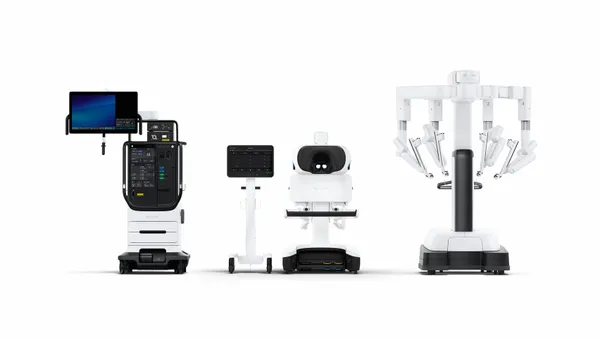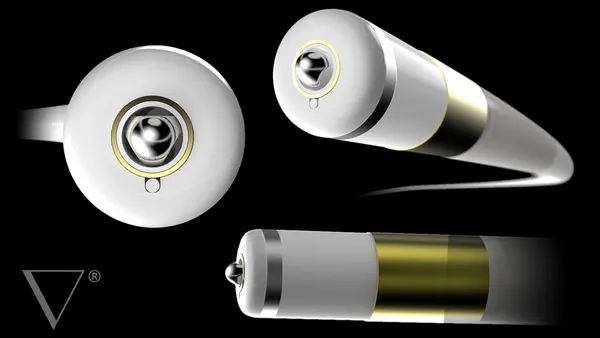Dive Brief:
- President Donald Trump's pick to be the next FDA commissioner laid out his views on a number of medical device issues in responses to questions posed by members of the Senate Committee on Health, Education, Labor and Pensions Committee, obtained by MedTech Dive.
- Radiation oncologist Stephen Hahn, who was advanced Tuesday by the committee 18-5 for consideration by the full Senate, committed to work to boost development of pediatric devices, backed the development of an active postmarket surveillance system, and said he would work with FDA professional staff to study a ban on the use of electrical stimulation devices on people with disabilities to protect patients.
- The nominee, who has invested in companies including Thermo Fisher, Stericycle, CVS Health and Nvidia, said in an ethics agreement he will divest his holdings within 90 days of his confirmation and not participate in decisions that impact them unless he obtains a written waiver or regulatory exemption.
Dive Insight:
While the nominee shed more light on his thoughts on certain medical device topics, in response to a question, Hahn declined to say FDA's scientific judgment of medical devices should be held to the same regulatory standards as drug products.
In response to questions from Senate HELP Committee Ranking Member Patty Murray, D-Wash., Hahn largely stuck to the same script in written questions he relied on during his confirmation hearing: FDA's professional staff have "remarkable expertise" and decision-making should rely on "science, data and the law."
Murray pressed Hahn to enhance monitoring of medical devices, citing duodenoscope infection outbreaks that have caused more than 250 patients nationwide to become infected with antibiotic-resistant bacteria.
Hahn agreed the development of the National Evaluation System for health Technology and other efforts will be key in boosting the safety of medical devices.
"I will carefully consider all tools for their ability to enhance accurate monitoring of the safety and effectiveness of marketed devices," Hahn wrote. "I think it is important for FDA to take a proactive, not passive approach to upholding the gold standard for all medical products before and after they enter the market."
The nominee also agreed to work with FDA staff, stakeholders and Congress to advance policies to encourage the development of more pediatric devices. FDA's Center for Devices and Radiological Health recently asked for input on how to minimize the burden of submitting applications for pediatric populations.
"I agree that there is a strong need to increase access to medical devices in the pediatric population, and recognize the unique needs of this population," Hahn wrote.
Hahn declined to commit to a timeline to finalize a ban on electrical stimulation devices, but said he would work with Murray on the issue, who raised concern about the use of the product. The FDA Fall Unified Agenda states the agency intends to issue the final rule by the end of 2019.
In response to a question about facilitating the development of new antibiotics, Hahn said leveraging diagnostics will be an important step to ensure they are appropriately used once approved.
"Diagnostics can play a critical role in stewardship and utilization so physicians could identify the appropriate drug and dosage to treat the infection," Hahn wrote.
Senate HELP Committee Chairman Lamar Alexander, R-Tenn., and Sen. Mitt Romney, R-Utah, told MedTech Dive they did not submit Questions for the Record to Hahn.
"He's exactly the type of nominee we should want to lead an agency as important as the FDA," Alexander said during the HELP Committee's Tuesday vote. "He visited most of us in our offices for conversations. He also answered an additional 205 questions, 325 if you include sub-questions, for the record from senators. Now it is time for him to be confirmed."













